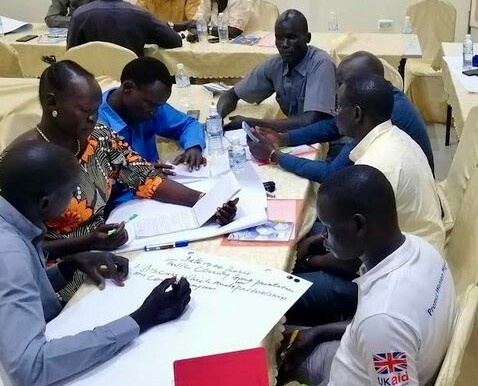Close to 40 participants from the six partner counties of the Rural Governance in South Sudan GIZ project, commissioned by the German Federal Ministry of Economic Cooperation and Development, came together from 18 to 19 April for the first Local Government Board (LGB) Intercounty Learning Forum in Juba.
According to a press statement, the forum brought together county commissioners and executive directors, civil society representatives, and community members from the partner counties Akobo, Aweil West, Manyo, Mundri East, Terekeka, and Twic.
“Violent intercommunal conflicts especially on access to and use of land as well as cattle migration are a source of much suffering, loss, and intergenerational trauma in South Sudan,” the statement said. “This is why since 2020, the Rural Governance Project has supported its political partner LGB in facilitating dialogue among governmental and non-governmental actors on issues of land dispute and cattle migration. The project offers training for local government administrative officers and community members on topics of rural development, strengthening citizen participation as well as promoting gender equality and peace and conflict mediation.”
The LGB intercounty Learning Forum provided a space to reflect on achievements, share good practices as well as lessons learned, and foster sustainable partnerships. Activities and initiatives implemented in the past years to promote peace and gender equality included community-based conflict resolution training as well as pieces of training on gender-based violence, the establishment of Peace and Development Committees, and the implementation of participatory peace and conflict analyses.
“The LGB Intercounty Learning Forum provided valuable insights on what worked well in the communities and allowed participants to jointly explore how local governments, community members and civil society can engage to contribute to a more peaceful life in South Sudan,” GIZ stated in the statement.
One participant from Aweil West County confirmed that the training helped improve community relations.
“With the skills acquired in the activities, the relationships within communities and among their members have improved and even once the GIZ project ends, the communities have ownership over the results and will carry on,” he said.
While the Rural Governance project concludes its activities in June this year, results are being taken up by the GIZ project “Strengthening Local Governance and Peaceful Coexistence in South Sudan (LoGo).” The project is jointly co-financed by the German Federal Ministry for Economic Cooperation and Development (BMZ) and the European Union and builds on the foundation created by the Rural Governance project by integrating lessons learned for sustainable and successful project implementation.
In South Sudan, GIZ works on behalf of the German Federal Ministry for Economic Cooperation and Development. Germany supports the long-term development of South Sudan, above all in the fields of local governance, rural development, sustainable agri-food systems, water and sanitation supply, peace and reconciliation, gender equality, and SGBV prevention.




